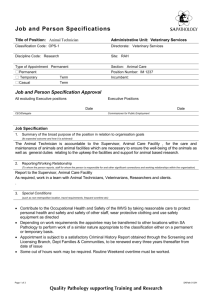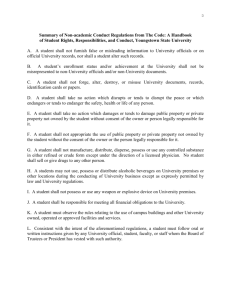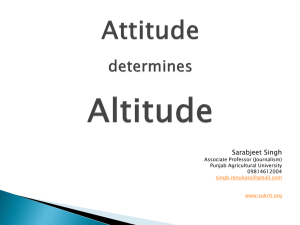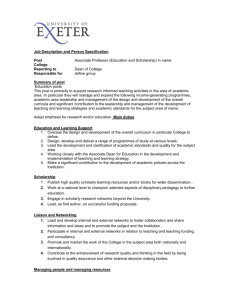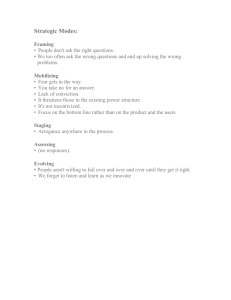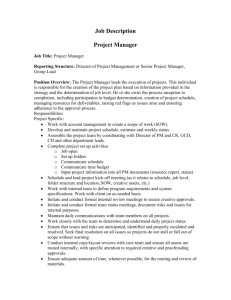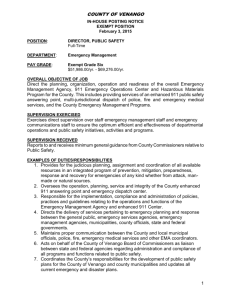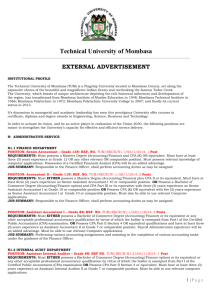Preserving Institutional Knowledge - Employee Self
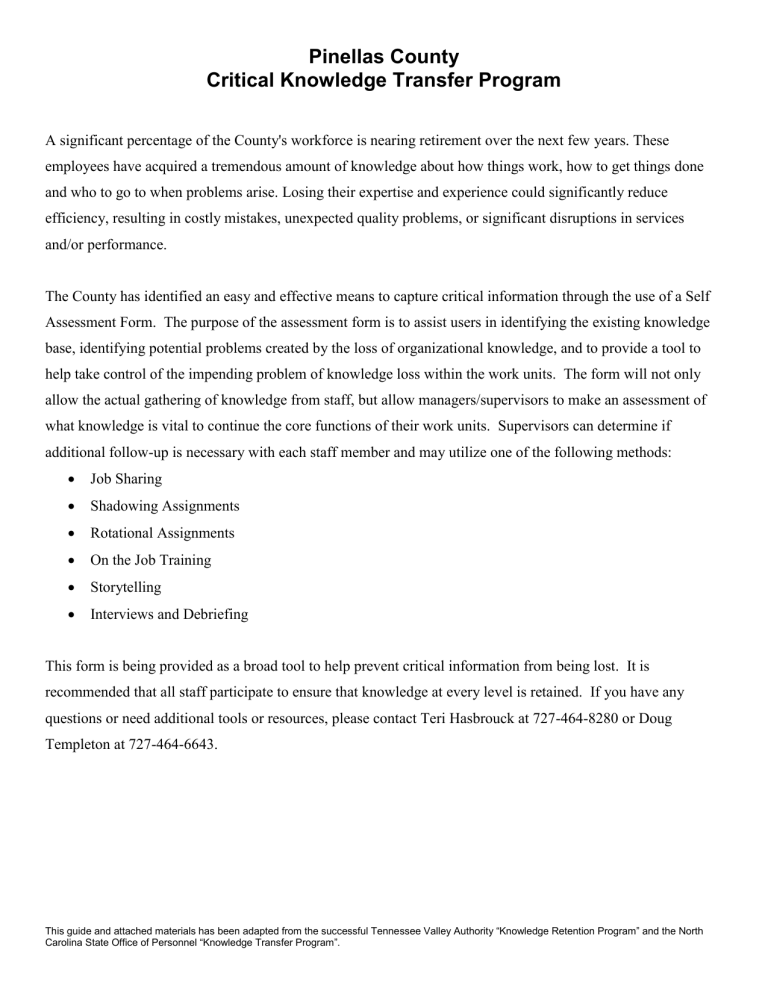
Pinellas County
Critical Knowledge Transfer Program
A significant percentage of the County's workforce is nearing retirement over the next few years. These employees have acquired a tremendous amount of knowledge about how things work, how to get things done and who to go to when problems arise. Losing their expertise and experience could significantly reduce efficiency, resulting in costly mistakes, unexpected quality problems, or significant disruptions in services and/or performance.
The County has identified an easy and effective means to capture critical information through the use of a Self
Assessment Form. The purpose of the assessment form is to assist users in identifying the existing knowledge base, identifying potential problems created by the loss of organizational knowledge, and to provide a tool to help take control of the impending problem of knowledge loss within the work units. The form will not only allow the actual gathering of knowledge from staff, but allow managers/supervisors to make an assessment of what knowledge is vital to continue the core functions of their work units. Supervisors can determine if additional follow-up is necessary with each staff member and may utilize one of the following methods:
Job Sharing
Shadowing Assignments
Rotational Assignments
On the Job Training
Storytelling
Interviews and Debriefing
This form is being provided as a broad tool to help prevent critical information from being lost. It is recommended that all staff participate to ensure that knowledge at every level is retained. If you have any questions or need additional tools or resources, please contact Teri Hasbrouck at 727-464-8280 or Doug
Templeton at 727-464-6643.
This guide and attached materials has been adapted from the successful Tenne ssee Valley Authority “Knowledge Retention Program” and the North
Carolina State Office of Personnel “Knowledge Transfer Program”.
Pinellas County
Identifying Critical Knowledge
Employee Knowledge Self Assessment
Name:
Department:
Title:
Supervisor:
1. List below any memberships or offices you hold in industry groups, associations or peer groups:
Group Role Frequency of Meeting
2. List below any emergency response or safety-related positions you hold:
3. List below all meetings that you regularly attend. Indicate the frequency of these meetings and the approximate time that each meeting takes. Explain your role in the meeting. Describe any preparation and follow-up for which you are responsible.
Frequency Duration Role Meeting Name
4. List and describe below any special roles you fill, such as mentoring, seasonal assignments or any support you provide to other work units.
This guide and attached materials has been adapted from the successful Tenne ssee Valley Authority “Knowledge Retention Program” and the North
Carolina State Office of Personnel “Knowledge Transfer Program”.
5. What skills and knowledge do you possess that may be considered unique and that may be difficult to replace? Who could fill-in for the short-term? Long-term?
6. Where are critical records (including electronic files and databases) located?
7. What major open actions/assignments do you have assigned to you? (Examples would be work-unit specific.)
8. Describe functional titles (formal or informal) or on-going team project you hold and how much of your time is devoted to these activities. (Examples: Training Coordinator, Budget
Coordinator, Team Lead or Project Manager.)
9. What direct interaction do you have with other departments that will need to be done by someone else in the future?
10. What approval authorities do you have that must be transferred to another (e.g., contract approval, peer checker, timesheet approval)? Who can serve in each role short-term? Longterm?
This guide and attached materials has been adapted from the successful Tenne ssee Valley Authority “Knowledge Retention Program” and the North
Carolina State Office of Personnel “Knowledge Transfer Program”.
11. What certifications or qualifications do you possess that are derived from external or internal training or processes? (Examples: PE, PHR, CPA or CCP)
12. Describe any special geographic information you possess about where things are located and how to get to particular locations. This includes the easiest way to get to locations.
13. Describe any special information you possess about the location or existence of materials, tools and equipment.
14. Describe any special information you possess about key contacts for expert advice, decisions, permissions, getting something processed or expedited.
15. Describe any information you possess about where to locate maps, lists, drawings, vendor manuals, design data, calculations, etc.
16. Describe any special information you possess about how to order parts, materials or services.
17. What other information needs to be captured or transferred?
This guide and attached materials has been adapted from the successful Tenne ssee Valley Authority “Knowledge Retention Program” and the North
Carolina State Office of Personnel “Knowledge Transfer Program”.
